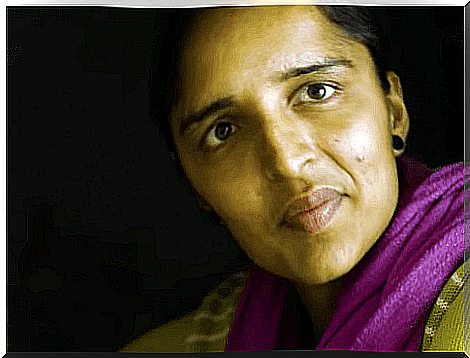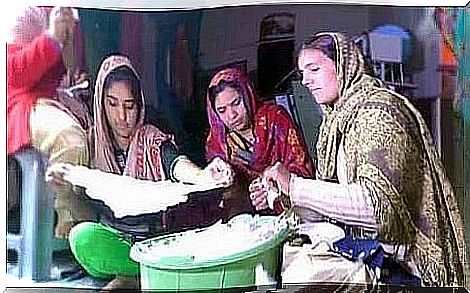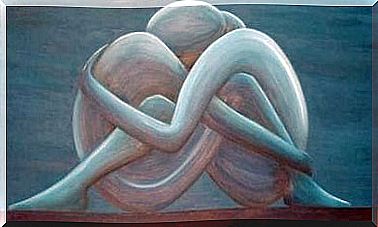Mensen – The Story Of A Revolution: Women In India

In this article, we are going to talk about a great documentary that recently premiered on Netflix. Mensen – The story of a revolution (original title: Period. End of Sentence) tells us about customs, stereotypes, stigma and taboos that are still a part of everyday life for many women in India today.
The documentary is about a taboo that many in India are fighting to eliminate: female menstruation. Although menstruation is considered completely normal in the western world, it is one fifth of one of the biggest barriers women have to overcome in India. And often in unimaginable ways.
Although it is one of the most fundamental aspects of being a woman, humans have been hiding, criticizing and demonizing it for centuries. The good news is that a group of women in India have found a way to change the world’s view of something as inherently feminine as menstruation.
A quiet fight
This documentary takes us to a rural area of Harpur, India, near Delhi. There is clearly a female revolution going on in India. However, many of the rural areas of the country adhere to the customs of the past. And some of these traditions link these women to an outdated past. For example, women are still sentenced to life as housekeepers and arranged marriages. In that context, they also drop out of school to become mothers without any other hope for a better future.
Quite recently, some women from a small community in Harpur began a quiet revolution against the stigma so deeply ingrained in their culture. Menstruation in Indian culture is taboo. Today, women have decided to lay the foundation for their awakening.
Bandages and other sanitary products for menstruation have only recently become part of the Indian market. Since you can only find them in big cities, these products are practically unavailable to most women. In addition to being sold only in certain places, they are also expensive. The pad Project turned an old abandoned house in Harpur into a factory. Here, women of all ages make their own bandages, which they also sell in stores.
When menstruation means the end of schooling
There are many serious problems that arise from the stigma of menstruation in India. However, the biggest problem is that many women still drop out of school when they get their first period.
This is actually an ancient tradition that marks the point where women begin their fertility period. Therefore, they have to let go of everything else in order to get married and have children. People in India still consider menstruation as something shameful and shameful. Many women consider themselves unclean, which prevents them from entering and praying at the temples. In fact, this also happens at temples dedicated to feminine deities. So powerful is the absurdity of this stigma.
Although many women in India find ways to escape from premature marriage through an education, many young women also leave school on their own due to menstruation. Often schools do not have suitable facilities where they can change and maintain hygiene. Virtually all of these young women use rags or cloths they dig down after using them. Again, this is something they can not do comfortably or privately at school.

The Pad Project and Women in India
The idea for The Pad Project was born in Los Angeles. This charity raised the necessary funds for the first 99% degradable binding machine set up by the Harpur Women’s Association.
The economic authority this machine has given these women has been significant. It has helped provide income to these women and their families. In addition, it has also triggered remarkable ripple effects. First, these women have earned the respect of the men in their community. Second, it has helped pay for the education of younger women.
Their brand of volume is called Fly. They chose this symbolic name because of the project’s goal: to allow women in India to finally spread their wings and fly.
Women in India overcome ignorance
The stigma surrounding menstruation in India is synonymous with ignorance. The documentary shows young men from Harpur who do not know what menstruation is. Some of them think it is a disease that affects more women than men.
For many of the men in the area, this project has allowed them to stop being ignorant, and to know both the feminine and masculine world a little better. The women of The Pad Project hope to one day eliminate all prejudices around menstruation.
A project so simple and so accessible caught everyone’s attention. The project set in motion a quiet and peaceful revolution. It filled women with the hope that the ignorance and stereotypes that have existed for centuries will finally end.









